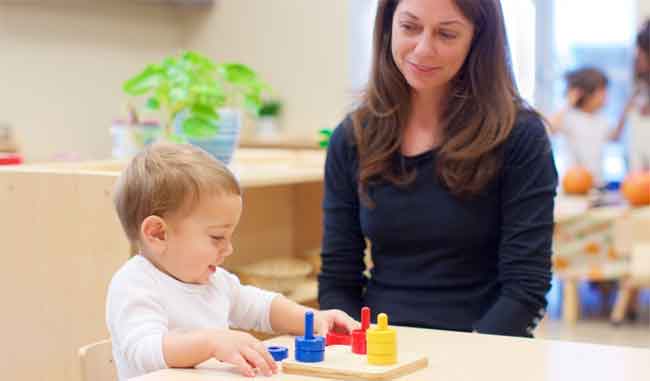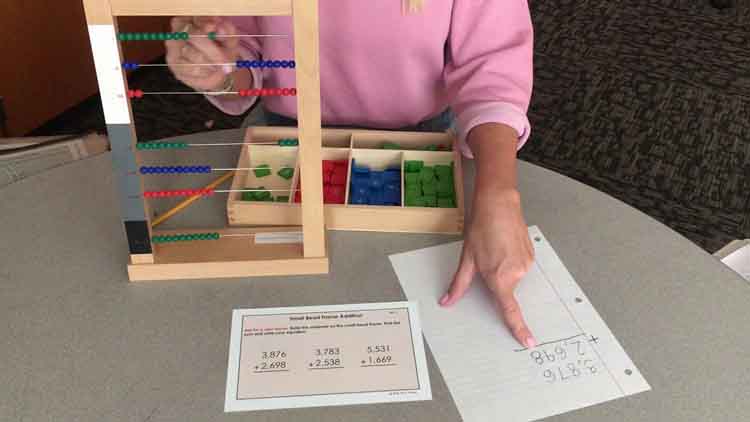In recent years, homeschooling has gained popularity as a viable educational option for families seeking to provide personalized learning experiences for their children. Among the various homeschooling approaches, Montessori homeschooling stands out for its child-centered philosophy. Rooted in the teachings of Dr. Maria Montessori, this method emphasizes independence, hands-on learning, and respect for a child’s natural development. This article explores the benefits, principles, and practical steps for implementing Montessori homeschooling, making it a compelling choice for families in the twenty-first century.
What is Montessori Home Schooling?
Montessori homeschooling adapts the core principles of the Montessori method to a home environment. This approach focuses on nurturing a child’s natural curiosity and desire to learn through exploration and self-directed activities. Unlike traditional schooling, which often relies on standardized curricula and teacher-led instruction, Montessori homeschooling allows children to follow their interests at their own pace.
Key Principles of Montessori Home Schooling
- Child-Centered Learning: The Montessori approach places the child at the center of the learning process. This means that lessons and activities are tailored to the child’s interests, abilities, and learning styles.
- Prepared Environment: A Montessori home is designed to facilitate independent learning. This includes organizing materials within reach, creating inviting learning spaces, and providing a variety of hands-on resources.
- Freedom Within Limits: While children are encouraged to explore and make choices, they also learn to respect boundaries and adhere to certain guidelines. This balance fosters self-discipline and responsibility.
- Mixed-Age Learning: Montessori classrooms typically include mixed-age groups, promoting peer learning and collaboration. Homeschooling can replicate this dynamic by allowing siblings or friends to learn together, enhancing social skills.
- Holistic Development: The Montessori method focuses not just on academic skills, but also on social, emotional, and practical life skills. This comprehensive approach prepares children for all aspects of life.
Benefits of Montessori Home Schooling
1. Individualized Learning
One of the most significant advantages of Montessori homeschooling is the ability to customize education to fit each child’s needs. Parents can tailor lessons and activities based on their child’s interests and pace, ensuring that they remain engaged and motivated.
2. Fostering Independence
Montessori homeschooling encourages children to take responsibility for their learning. By allowing them to choose activities and manage their time, children develop essential life skills such as decision-making, problem-solving, and self-discipline.
3. Strengthening Family Bonds
Homeschooling provides families with the opportunity to spend more time together. Parents can be actively involved in their children’s education, creating a nurturing environment that strengthens familial relationships.
4. Flexible Learning Environment
Montessori homeschooling allows families to create their own schedules and adapt to individual needs. Whether it’s pursuing interests outside traditional subjects or adjusting learning times to fit family routines, flexibility is a key benefit.
5. Lifelong Learning Mindset
By fostering a love for learning through exploration and inquiry, Montessori homeschooling helps children develop a lifelong passion for knowledge. This intrinsic motivation is invaluable for future academic and personal success.
Practical Steps to Implement Montessori Homeschooling
1. Create a Prepared Environment
Setting up a Montessori-inspired home environment is crucial. Here are some tips:
- Organize Learning Areas: Designate specific areas for different activities (e.g., reading, art, science). Ensure materials are easily accessible and organized.
- Choose Quality Materials: Invest in high-quality, hands-on learning materials. These could include Montessori-specific resources, nature-based items, and everyday objects that spark curiosity.
- Foster Independence: Use child-sized furniture and tools to encourage autonomy. Allow children to choose their activities and manage their learning space.
2. Develop a Daily Routine
While flexibility is essential, a structured daily routine can help provide a sense of stability. Consider incorporating:
- Morning Meetings: Start the day with a family meeting to discuss plans, goals, and activities.
- Work Periods: Designate focused work periods where children can engage in self-directed learning.
- Reflection Time: End the day with reflection, allowing children to share what they learned and enjoyed.
3. Incorporate Real-Life Learning
Montessori homeschooling emphasizes practical life skills. Include activities that encourage children to engage with the world around them:
- Cooking: Involve children in meal preparation to teach math, science, and nutrition.
- Gardening: Create a garden to explore biology, ecology, and responsibility.
- Community Service: Encourage children to participate in community projects, fostering empathy and social awareness.
4. Utilize Resources
Numerous resources can support Montessori homeschooling:
- Books and Online Courses: Explore books by Montessori experts or online courses that guide implementing the Montessori method at home.
- Montessori Communities: Join local or online Montessori groups to connect with other homeschooling families, share resources, and exchange ideas.
- Educational Apps: Leverage technology by using educational apps that align with Montessori principles, providing interactive learning experiences.
5. Assess Progress Holistically
Instead of relying on standardized testing, assess progress through observation and documentation. Keep a portfolio of your child’s work, reflecting their growth and achievements across various domains, including academic, social, and emotional development.
Montessori homeschooling offers a unique and enriching educational experience that aligns with the needs of modern families. By embracing child-centered learning, fostering independence, and creating a prepared environment, parents can cultivate a love for learning in their children. As education continues to evolve, Montessori homeschooling stands as a compelling option, equipping children with the skills they need to thrive in an ever-changing world. If you’re considering this approach, the journey can be as rewarding as it is educational, creating a lifelong foundation for curiosity, creativity, and resilience.



